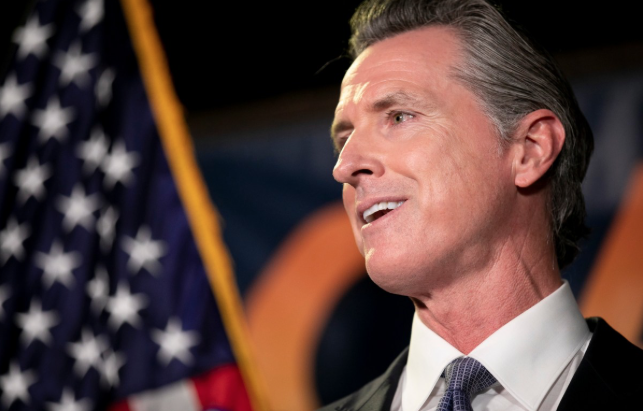CommentsWHAT’S UP IN SACRAMENTO - Gov. Gavin Newsom’s administration is very gingerly lifting the restrictions on personal behavior that were imposed to counter the omicron surge of COVID-19 — particularly the requirement to wear masks inside public places.
It’s the latest wrinkle in two years of Newsom decrees alternatively tightening and then loosening behavioral controls to deal with the pandemic and comes as the governor focuses on getting himself re-elected to a second term this year.
His re-election prospects are high, given the lack — so far — of a viable Republican opponent, the state’s very blue political orientation and his easy defeat of a recall attempt last year.
That said, Newsom’s overall popularity is less than impressive, as two recent statewide polls found, with crime and homelessness the most erosive factors in his public standing.
The first poll, conducted by the Public Policy Institute of California in January, gave Newsom a 56% approval rating among all adults, markedly lower than his high water mark of 65% in May 2020 but also markedly higher than his low of 44% in September 2019.Bottom of Form
The second, conducted in February and released on Tuesday by the Institute of Governmental Studies at UC-Berkeley, puts Newsom’s approval rating among registered voters at 48%, just slightly higher than his lowest rating of 46% a year ago. Significantly, 47% of voters disapprove of how he has performed as governor.
“Contributing to voters’ more mixed assessment of the governor are growing concerns of how Newsom is handling several festering problems, such as homelessness and crime, that are now plaguing the state,” Mark DiCamillo, director of the Berkeley-IGS poll, said in an analysis.
“For example, two in three voters (66%) now rate Newsom as doing a ‘poor’ or ‘very poor’ job in his handling of the issue of homelessness. This is up 12 percentage points from 2020, the last time the poll made an assessment. In addition, a 51% majority of voters also downrates the Governor’s performance on crime and public safety issues, up 16 percentage points from 2020.”
The poll confirms that Californians are increasingly worried about a recent uptick in crime, both violent and property offenses, and are increasingly fed up with the inability of Newsom and other politicians to deal effectively with homelessness that has manifested itself in squalid encampments throughout the state.
Two recent crimes in the Sacramento area even indicate that the two issues could be joined in the minds of voters. A young woman was kidnapped in suburban Sacramento and brutally murdered, allegedly by a homeless man living in the American River Parkway. A young mother was placing her two children in the car after they had visited a park in East Sacramento when she was attacked and beaten, allegedly by a man living in a nearby homeless camp.
Newsom knows that these two issues are big downers for him and has uttered many recent denunciations of criminal activities, particularly smash-and-grab robberies, and promises to clean up urban blight.
Again, Newsom is no danger of being unseated this year. But if crime and homelessness continue to be seen as failures, they will stain his gubernatorial legacy. Moreover, they could adversely affect his fellow Democrats in down-ballot contests.
Both of the Sacramento crimes will be prosecuted by Sacramento County District Attorney Anne Marie Schubert, who is challenging Attorney General Rob Bonta, a Newsom appointee, and calling for a tougher attitude toward crime.
Republicans intend to make crime a centerpiece of their campaign to regain control of Congress and with several California seats up in the air, it could be a decisive factor.
(Dan Walters has been a journalist for more than 60 years, spending all but a few of those years working for California newspapers. Walters has written about California and its politics for a number of publications, including The Wall Street Journal and the Christian Science Monitor. In 1986, his book, “The New California: Facing the 21st Century,” was published in its first edition. He is also the founding editor of the “California Political Almanac,” the co-author of a book on lobbying entitled “The Third House: Lobbyists, Money and Power in Sacramento,” and contributed chapters to two other books, “Remaking California” and “The New Political Geography of California. This article was featured in CalMatters.org.)
